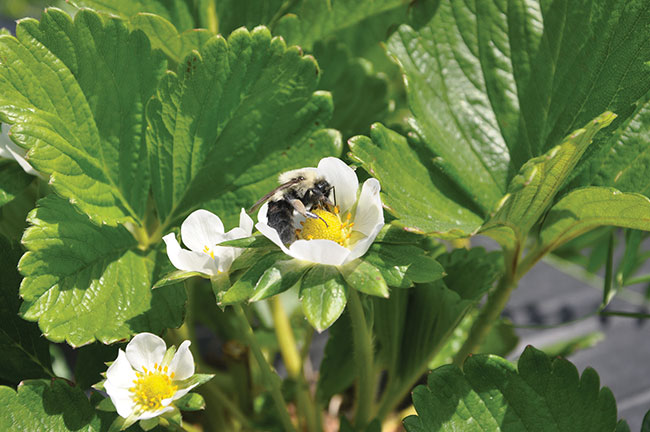Original Article Source: What’s New in Farming
BVT: Commercially reared bees deliver sustainable and effective crop protection
Article By: WniF Editors

BVT uses bees to deliver crop protection products direct to growing plants.
Bee Vectoring Technology (BVT) is a Canadian agricultural technology company that uses commercially-reared bees to deliver sustainable and effective crop protection. Its system is now being rolled out across Europe for the first time, and has been producing impressive results.
The system relies on bees walking through a tray of powder containing a bee-friendly fungal active ingredient before exiting their hive; they then pass on spores to each plant they visit.

The naturally occurring fungus (Clonostachys rosea) is one active ingredient being used. It’s absorbed by the plants, enabling them to inhibit destructive diseases.
This approach has earned BVT landmark approval from the United States Environmental Protection Agency as the first bee delivered crop protection product. It’s completely natural, uses no water and is harmless to bees, animals and humans.
BVT’s organic fungicide destroys fungi that can blight crop yields. Plus, crop trials have repeatedly demonstrated greater yields, including three-year strawberry increases of 18 per cent. Studies have shown improved plant health and also increased shelf life for the harvested crop.

Swiss organic fruit producer Räss Wildbeeren has successfully implemented the system and just come to the end of its first growing season. Owner Simon Räss estimated at the end of the season that it allowed them to sell 90 to 95 per cent of the fruit as “first-class”, much better than the 70 to 80 per cent when the company relied on chemical sprays.






